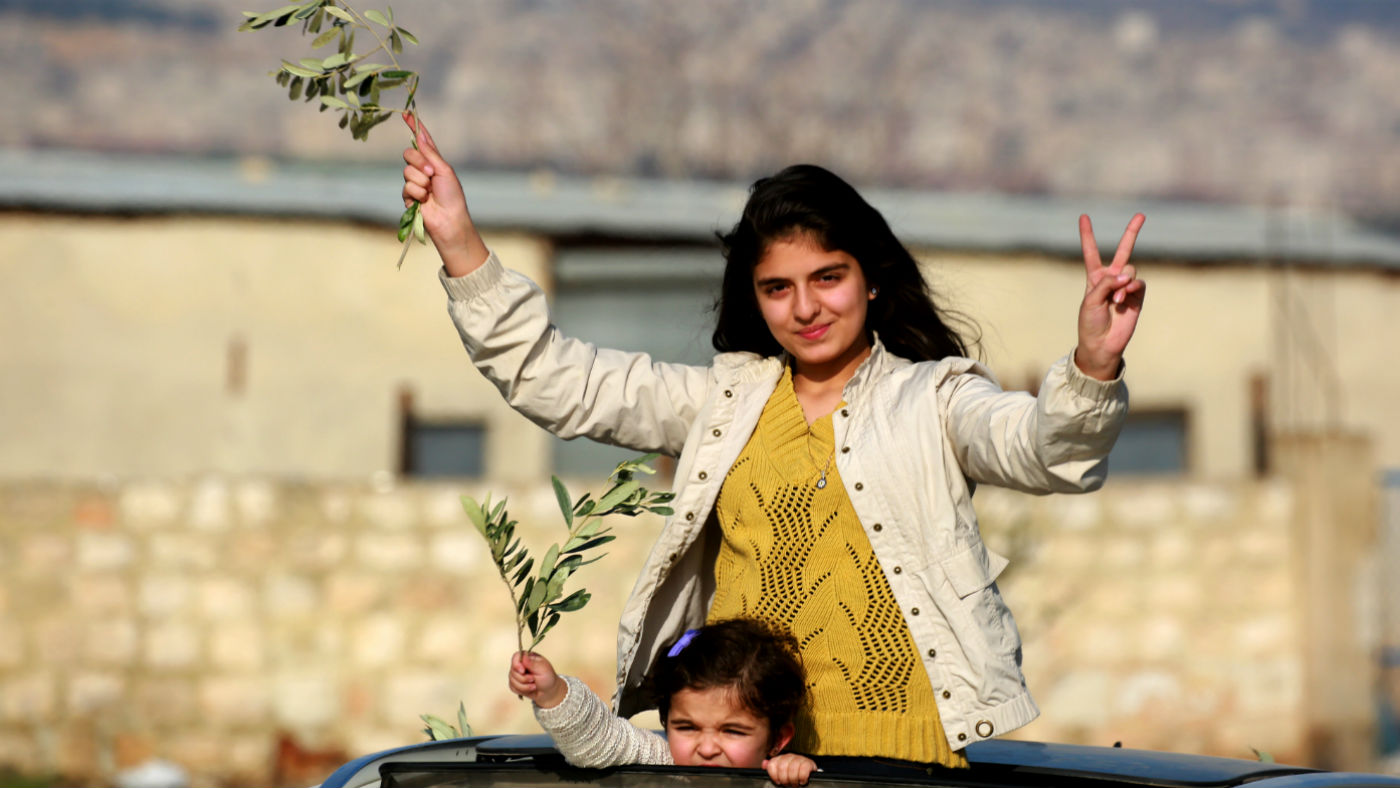Why does an olive branch mean peace?
The ancient origins of worldwide symbol of reconciliation

A free daily email with the biggest news stories of the day – and the best features from TheWeek.com
You are now subscribed
Your newsletter sign-up was successful
Along with white dove and the V-sign, an olive branch is one of our most enduring symbols for peace.
In fact, an Ancient Roman transported to the 21st century would instantly understand the meaning of the literal olive branch that Katy Perry recently sent fellow pop star Taylor Swift to offer an end to their much-publicised feud.
So what is the connection?
The Week
Escape your echo chamber. Get the facts behind the news, plus analysis from multiple perspectives.

Sign up for The Week's Free Newsletters
From our morning news briefing to a weekly Good News Newsletter, get the best of The Week delivered directly to your inbox.
From our morning news briefing to a weekly Good News Newsletter, get the best of The Week delivered directly to your inbox.
Like many traditional emblems, the association has classical roots. Olives held a wide array of meanings to the ancient peoples of the Mediterranean, where the trees can be seen on almost every hillside.
Winners at the Ancient Greek Olympic games were crowned with olive wreaths, and olive trees featured in several Greek myths. In one, the goddess Athena became the patron of the region of Attica after planting an olive tree there as a symbol of peace and prosperity.
Other Ancient Mediterranean cultures used the olive branch as a metaphor for peace. Pax, the Roman goddess of peace, was frequently depicted holding an olive branch, as was her Greek counterpart, Eirene.
The image has endured into modern times partly because of its use in the Bible, most notably in the tale of Noah, when a dove bearing a twig from an olive tree signals the end of the 40-day flood.
A free daily email with the biggest news stories of the day – and the best features from TheWeek.com
In Christian theology, the flood and the olive branch respectively represent “the judgement that must befall all rebels while also representing the salvation that can be theirs”, writes Christian author Tim Challies.
“During the 1600s, it became fashionable for poets and artists to use the olive branch,” says The New York Times. It later took on a political significance in the American independence movement as a symbol of the patriots’ desire for a peaceful separation from Great Britain.
A close-up look at the bald eagle on the Great Seal of the US, which appears on government documents and on the one-dollar bill, shows that the bird is clasping an olive branch in its right talon, while the more warlike left talon holds a brace of arrows.
In the modern era, the UN signals its commitment to peacekeeping on its blue and white flag, which shows a map of the world encircled by twin olive branches.
-
 Political cartoons for February 15
Political cartoons for February 15Cartoons Sunday's political cartoons include political ventriloquism, Europe in the middle, and more
-
 The broken water companies failing England and Wales
The broken water companies failing England and WalesExplainer With rising bills, deteriorating river health and a lack of investment, regulators face an uphill battle to stabilise the industry
-
 A thrilling foodie city in northern Japan
A thrilling foodie city in northern JapanThe Week Recommends The food scene here is ‘unspoilt’ and ‘fun’
-
 Epstein files topple law CEO, roil UK government
Epstein files topple law CEO, roil UK governmentSpeed Read Peter Mandelson, Britain’s former ambassador to the US, is caught up in the scandal
-
 Iran and US prepare to meet after skirmishes
Iran and US prepare to meet after skirmishesSpeed Read The incident comes amid heightened tensions in the Middle East
-
 Israel retrieves final hostage’s body from Gaza
Israel retrieves final hostage’s body from GazaSpeed Read The 24-year-old police officer was killed during the initial Hamas attack
-
 China’s Xi targets top general in growing purge
China’s Xi targets top general in growing purgeSpeed Read Zhang Youxia is being investigated over ‘grave violations’ of the law
-
 Panama and Canada are negotiating over a crucial copper mine
Panama and Canada are negotiating over a crucial copper mineIn the Spotlight Panama is set to make a final decision on the mine this summer
-
 Why Greenland’s natural resources are nearly impossible to mine
Why Greenland’s natural resources are nearly impossible to mineThe Explainer The country’s natural landscape makes the task extremely difficult
-
 Iran cuts internet as protests escalate
Iran cuts internet as protests escalateSpeed Reada Government buildings across the country have been set on fire
-
 US nabs ‘shadow’ tanker claimed by Russia
US nabs ‘shadow’ tanker claimed by RussiaSpeed Read The ship was one of two vessels seized by the US military